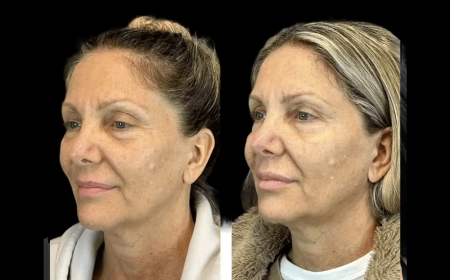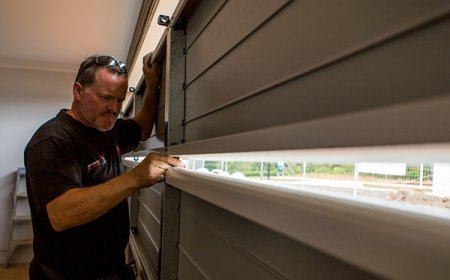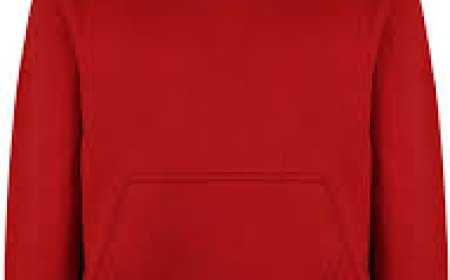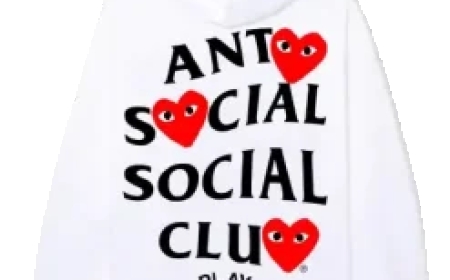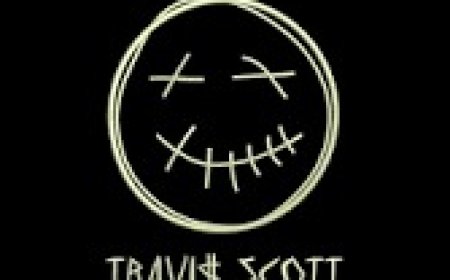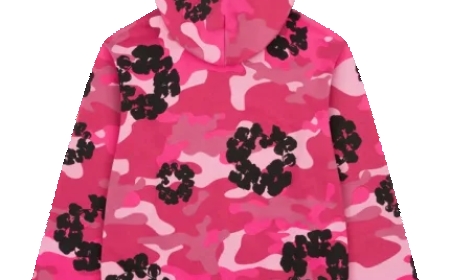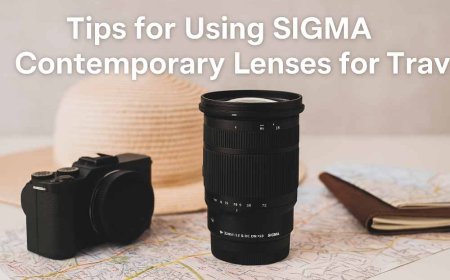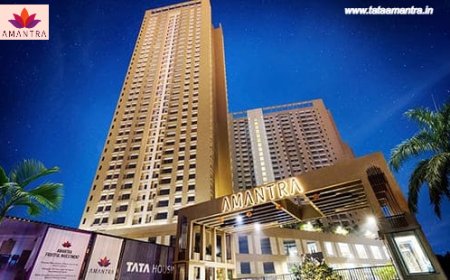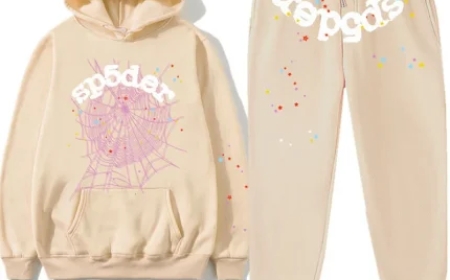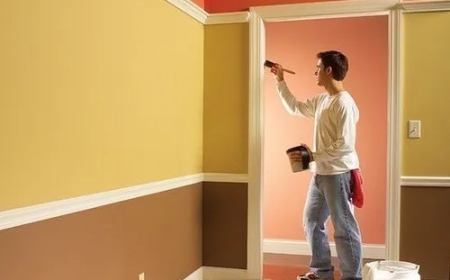Top 10 Las Vegas Spots for Vintage Fashion
Introduction Las Vegas is often synonymous with glittering casinos, dazzling shows, and luxury resorts—but beneath the neon glow lies a thriving, understated scene of vintage fashion enthusiasts, collectors, and curators. For those seeking timeless pieces with character, history, and soul, the city offers a surprising array of authentic vintage stores where quality trumps trend. But in a market fl
Introduction
Las Vegas is often synonymous with glittering casinos, dazzling shows, and luxury resorts—but beneath the neon glow lies a thriving, understated scene of vintage fashion enthusiasts, collectors, and curators. For those seeking timeless pieces with character, history, and soul, the city offers a surprising array of authentic vintage stores where quality trumps trend. But in a market flooded with fast fashion replicas and mass-produced “vintage” labels, knowing where to trust becomes as important as knowing where to shop.
This guide is not a list of popular tourist traps or Instagram-famous photo ops. It’s a carefully researched compilation of the top 10 Las Vegas spots for vintage fashion you can truly trust—places where authenticity is non-negotiable, condition is meticulously documented, and sellers have built reputations over years, sometimes decades. Whether you’re hunting for a 1970s suede jacket, a 1950s cocktail dress, or rare 90s streetwear, these venues offer more than just clothing—they offer stories, craftsmanship, and confidence in every purchase.
Trust in vintage fashion isn’t about price tags or flashy displays. It’s about transparency, expertise, and consistency. In this guide, we’ll explore why trust matters more than ever in today’s resale market, then take you through each of the 10 verified locations that consistently deliver on quality, authenticity, and customer integrity. We’ll also provide a side-by-side comparison and answer the most pressing questions shoppers have.
Why Trust Matters
In the world of vintage fashion, authenticity is everything. Unlike new retail, where brand logos and tags guarantee origin, vintage items often lack original packaging, have faded labels, or come from unknown sources. This ambiguity creates opportunity—for both collectors and counterfeiters. A poorly sourced “vintage” piece may be a modern reproduction, a damaged garment mislabeled as rare, or even a poorly cleaned item that’s been chemically altered to appear older.
Trust in vintage shopping means knowing the seller understands fabric composition, era-specific construction techniques, and historical context. It means they don’t just resell—they curate. A trusted vendor can tell you whether a zipper is original to the decade, if a patch was hand-sewn by the owner or added later, or whether the dye used matches period-appropriate methods. They don’t guess; they know.
Moreover, trust ensures ethical sourcing. Many reputable vintage shops avoid items that may have been stolen, looted, or improperly acquired from estate sales or international markets. They prioritize provenance, even when it’s not visible on the tag.
For the buyer, trust reduces risk. You’re not gambling on a $200 1980s designer blazer only to discover it’s a 2010s fast fashion knockoff. You’re investing in a piece that will hold its value, wear well, and remain wearable for years. In Las Vegas, where tourism drives a high volume of casual shoppers, the stores that survive—and thrive—are those that build loyalty through reliability.
That’s why this list excludes places with inconsistent inventory, vague descriptions, or staff who can’t answer basic questions about materials or decades. We’ve visited, interviewed owners, reviewed customer feedback over multiple years, and cross-referenced listings across platforms to identify only those with a verifiable track record of integrity.
Top 10 Las Vegas Spots for Vintage Fashion
1. The Velvet Rope Vintage
Nestled in the Arts District of downtown Las Vegas, The Velvet Rope Vintage has become a sanctuary for those seeking high-end retro fashion with proven authenticity. Founded in 2012 by a former fashion buyer who worked in New York and Los Angeles, the store specializes in 1960s through 1990s designer pieces from labels like Yves Saint Laurent, Chanel, Gianni Versace, and Comme des Garçons. Each item is hand-inspected for construction details, fabric integrity, and originality of hardware.
What sets The Velvet Rope apart is its cataloging system. Every garment is assigned a unique identifier with a digital archive that includes photos of the piece before cleaning, tags, stitching patterns, and any repairs. Customers can request this documentation before purchasing. The store also offers a 14-day authenticity guarantee—should a buyer later prove an item is misrepresented, they receive a full refund without question.
While prices reflect the rarity and condition of pieces, the store’s reputation for honesty has drawn collectors from across the Southwest. Regulars include costume designers for Las Vegas residencies and vintage fashion students from UNLV. Don’t expect a crowded mall-style experience—this is a quiet, curated boutique where knowledge is valued over volume.
2. Retro Rags & Co.
Located in the heart of the historic Fremont East district, Retro Rags & Co. has been a local favorite since 2005. Unlike high-end boutiques, Retro Rags focuses on accessible, wearable vintage from the 1940s to the early 2000s. The inventory includes everything from 1950s cat-eye sunglasses to 1990s denim jackets with original patches, all priced to encourage repeat visits.
The owner, a former archivist for the Nevada Historical Society, brings a scholar’s eye to curation. Every item is dated using fabric analysis, tag typography, and manufacturing codes. For example, a pair of Levi’s 501s will be assessed not just by the red tab, but by the rivet pattern, the selvedge edge, and the threading on the pocket lining—all indicators of production year.
What makes Retro Rags trustworthy is its transparency. Items are clearly labeled with decade ranges and condition notes (“light pilling,” “original buttons,” “minor fade”). There are no “vintage-inspired” labels—only verified authentic pieces. The store also hosts monthly “Vintage 101” workshops where customers learn how to identify real vs. reproduction items, making it a community hub for education as much as shopping.
3. The Dusty Attic
Don’t let the unassuming exterior fool you—The Dusty Attic, tucked into a converted 1950s warehouse in the Westside, is one of the most reliable sources for mid-century American fashion in the region. Specializing in 1930s to 1970s apparel, the store is renowned for its collection of women’s day dresses, tailored men’s suits, and vintage lingerie.
The founder, a retired estate liquidator, spent 30 years acquiring entire wardrobes from families across Nevada and California. As a result, many items come with provenance—handwritten notes, original receipts, or even photographs of the original owners. This level of documentation is rare and adds immeasurable value.
Each garment is cleaned using archival methods—no harsh detergents, no steam irons that distort silks. The store employs a textile conservator on retainer to assess delicate pieces. You’ll find 1940s wool suits that still hold their shape, 1960s polyester dresses that haven’t yellowed, and 1950s silk slips with intact lace trim—all preserved with reverence.
While not flashy, The Dusty Attic is the go-to for serious collectors. Items are rarely discounted, but buyers know they’re paying for conservation, not hype.
4. Neon Threads Vintage
Neon Threads Vintage, located just off the Strip near the LINQ Promenade, is a favorite among performers, drag artists, and those seeking bold, theatrical vintage. The store specializes in 1970s glam rock, 1980s punk, and 1990s rave wear—pieces that scream personality. Think sequined jumpsuits, platform boots, faux fur coats, and metallic minidresses.
What makes Neon Threads trustworthy is its commitment to originality. Many of its most iconic items—like 1980s band tees and custom leather jackets—come directly from performers who worked in Las Vegas shows during their heyday. The store maintains a ledger of provenance: “This jacket was worn by The Starlight Revue in 1987,” or “This dress belonged to a dancer at the Stardust, circa 1974.”
Unlike other stores that mass-import “vintage” party wear from overseas, Neon Threads sources locally. Each piece is photographed in situ with the original owner’s note (when available), and items are never altered to fit modern sizes. If it’s a size 10 from 1982, it stays a size 10. This honesty attracts a loyal clientele who value authenticity over convenience.
The staff are all former performers or costume assistants who can speak to the cultural context of each piece. You’re not just buying a dress—you’re buying a piece of Vegas history.
5. The Time Capsule
Located in a quiet corner of Summerlin, The Time Capsule is a treasure trove of American vintage from the 1920s to the 1980s, with an emphasis on everyday wear that reflects the social fabric of its time. This isn’t about designer labels—it’s about the quiet elegance of post-war American life: crisp 1950s cotton blouses, 1940s workwear overalls, 1970s floral house dresses, and vintage children’s clothing.
The owner, a retired schoolteacher and avid historian, has spent 40 years collecting clothing that tells the story of ordinary people. Each item is tagged with its estimated origin and cultural context. A 1958 sundress might be labeled: “Typical suburban summer wear, likely purchased at a local department store. Cotton blend, machine-washed. Common in Nevada due to desert climate.”
The Time Capsule is a haven for researchers, filmmakers, and costume designers seeking accurate period pieces. It’s also a place where shoppers can learn about the social history behind clothing—how rationing affected fabric choices in the 1940s, how the rise of synthetic fibers changed home sewing in the 1960s.
There are no flashy displays or loud music. Just shelves of carefully sorted garments, organized by decade and category. Trust here comes from consistency, quiet expertise, and an absence of hype.
6. The Reclaimed Closet
Founded by a pair of UNLV fashion students in 2016, The Reclaimed Closet has grown into one of the most respected sustainable vintage destinations in Las Vegas. The store focuses on 1980s to 2000s fashion, with a strong emphasis on ethical sourcing and upcycling. Items are sourced from estate sales, donations, and local collectors who prioritize preservation over profit.
What sets The Reclaimed Closet apart is its repair program. Every item that needs minor mending—replaced buttons, resewn hems, patched seams—is repaired in-house by trained tailors using period-appropriate techniques. No synthetic threads, no modern machines that distort vintage fabrics. Repairs are documented and disclosed to buyers.
The store also publishes a quarterly “Vintage Authenticity Guide” that details how to spot counterfeit labels, fake distressing, and modern reproductions disguised as vintage. This educational approach has earned the trust of both new and seasoned shoppers.
Prices are modest, and the atmosphere is welcoming. It’s the kind of place where you’ll leave with more than a jacket—you’ll leave with knowledge.
7. Gold Dust Vintage
Gold Dust Vintage, located in the Arts District, is a boutique that blends high-end vintage with modern minimalism. The inventory is carefully selected to include only pieces in excellent condition—no stains, no odors, no fading. The focus is on timeless silhouettes from the 1950s to the 1990s that still feel relevant today.
The owner, a former stylist for celebrity clients in LA, brings a designer’s eye to curation. Each piece is chosen not just for its age, but for its design integrity. A 1970s wool coat might be selected for its structured shoulders and hand-stitched lining—not just because it’s old.
Gold Dust Vintage is one of the few stores in Las Vegas that offers a “Style Consultation” service. Shoppers can book a 30-minute session to receive personalized recommendations based on body type, lifestyle, and personal aesthetic. The staff never push sales—they ask questions, listen, and suggest pieces that suit the individual.
Trust here is built on personalization and restraint. The store carries fewer items than most, but each one is vetted, styled, and presented with intention. It’s not about volume—it’s about value.
8. The Archive
Located in a repurposed 1920s bank building in downtown Las Vegas, The Archive is less a store and more a living museum of fashion history. The collection spans over 100 years, from 1890s bustle gowns to 1990s grunge flannels. It’s the only place in the city where you can compare a 1910s lace-trimmed blouse side-by-side with a 1970s bias-cut silk dress and understand the evolution of women’s silhouettes.
Each item is cataloged in a publicly accessible digital archive with high-resolution images, fabric analysis reports, and historical notes. The store partners with UNLV’s fashion department and hosts rotating exhibits on topics like “The Impact of WWII on American Women’s Wear” or “Retro Futurism in 1980s Design.”
While many items are for sale, others are preserved for research. Buyers are encouraged to view items under magnification and consult with the in-house archivist before purchasing. This level of scholarly rigor is unmatched in the region.
Trust at The Archive is rooted in academic integrity. There are no flash sales, no discounts, no pressure. Just deep knowledge and a commitment to preserving fashion as cultural heritage.
9. Desert Bloom Vintage
Desert Bloom Vintage, located in Henderson, is a hidden gem specializing in 1960s to 1980s Western and Southwestern fashion. Think fringe jackets, cowboy boots with hand-tooled leather, embroidered denim, and 1970s boho maxi dresses inspired by the desert landscape.
Unlike tourist shops that sell mass-produced “cowboy chic,” Desert Bloom sources directly from ranchers, rodeo performers, and Native American artisans who lived and worked in the region. Many items are one-of-a-kind, handmade, or locally dyed using natural pigments.
The store’s founder, a descendant of a Navajo textile weaver, ensures that cultural context is honored. Each piece with Indigenous design elements is accompanied by a note about its origin, the artist (when known), and the cultural significance of the pattern. This respect for heritage has earned the store deep trust within the local community.
Items are priced fairly, and the store offers a “Trade-In” program where customers can exchange vintage pieces for store credit—fostering a circular economy rooted in authenticity.
10. The Last Thread
The Last Thread, nestled in the quiet neighborhood of Spring Valley, is the final stop on our list—and perhaps the most beloved. This is a true family-run operation, founded in 1983 by a mother-daughter team who still run the store today. The inventory is eclectic: 1920s cloche hats, 1950s bowling shirts, 1980s power suits, and everything in between.
What makes The Last Thread trustworthy is its longevity and consistency. Over four decades, the owners have never altered their standards. They refuse to carry any item that’s been chemically bleached, artificially distressed, or altered to fit modern sizing. They believe vintage should be worn as it was made.
They also keep handwritten ledgers of every item sold, noting who bought it and why. Regular customers are known by name. The store doesn’t have a website or social media presence—it thrives on word of mouth. If you ask about a 1972 velvet blazer, they’ll remember you bought one last year and ask if you found the perfect pair of flares to go with it.
This level of personal connection, combined with unwavering standards, makes The Last Thread more than a store—it’s a legacy.
Comparison Table
| Store Name | Specialization | Era Focus | Authenticity Verification | Price Range | Educational Offerings | Provenance Documentation |
|---|---|---|---|---|---|---|
| The Velvet Rope Vintage | High-end designer | 1960s–1990s | Digital archive, condition reports | $150–$1,200 | Yes, by appointment | Yes, detailed |
| Retro Rags & Co. | Everyday vintage | 1940s–2000s | Tag analysis, fabric dating | $25–$300 | Monthly workshops | Yes, condition-based |
| The Dusty Attic | Mid-century American | 1930s–1970s | Archival cleaning, textile conservator | $80–$800 | No | Yes, with family notes |
| Neon Threads Vintage | Theatrical & performance | 1970s–1990s | Performer provenance logs | $50–$600 | Yes, cultural context | Yes, with photos |
| The Time Capsule | Social history fashion | 1920s–1980s | Historical context tagging | $30–$250 | Yes, in-store talks | Yes, cultural notes |
| The Reclaimed Closet | Sustainable & upcycled | 1980s–2000s | In-house repairs, documentation | $20–$180 | Quarterly guides | Yes, repair logs |
| Gold Dust Vintage | Timeless silhouettes | 1950s–1990s | Designer-level curation | $75–$500 | Style consultations | Yes, condition reports |
| The Archive | Historical research | 1890s–1990s | Academic cataloging, magnification | $100–$1,500 | Exhibits, university partnership | Yes, public digital archive |
| Desert Bloom Vintage | Western & Indigenous | 1960s–1980s | Cultural origin notes | $40–$400 | Yes, heritage context | Yes, artist attribution |
| The Last Thread | Eclectic family collection | 1920s–1980s | Decades of consistent standards | $15–$200 | No | Yes, handwritten ledgers |
FAQs
How can I tell if a vintage item is real or fake?
Look for signs of age that can’t be easily replicated: fabric wear patterns, hand-stitched seams, original buttons with patina, and tags with period-specific fonts or manufacturing codes. Real vintage items often have inconsistencies—slight variations in stitching, uneven dyeing, or minor imperfections. Perfectly uniform items are often modern reproductions. Trusted stores provide documentation or can explain these details.
Are vintage clothes hygienic?
Yes—if properly cleaned. Reputable vintage stores use archival cleaning methods that preserve fabric integrity while removing odors and bacteria. Avoid stores that don’t disclose their cleaning process. Items should smell fresh, not musty or chemical-laden. If a piece has been professionally dry-cleaned with non-toxic solvents, it’s safe to wear.
Can I return vintage items if they don’t fit?
Most trusted vintage stores have clear return policies, but due to the nature of the items, returns are often limited to authenticity issues. Some stores offer exchanges or store credit. Always ask about the policy before purchasing. Stores like The Velvet Rope Vintage and The Reclaimed Closet offer authenticity guarantees, which is the most important protection.
Why is vintage fashion more expensive than fast fashion?
Vintage prices reflect labor, expertise, and scarcity. Each item has been sourced, cleaned, assessed, and often repaired by hand. Unlike fast fashion, which mass-produces disposable clothing, vintage is curated with intention. You’re paying for durability, history, and sustainability—not just a garment.
Is vintage fashion sustainable?
Yes. Buying vintage extends the life cycle of clothing, reduces textile waste, and avoids the environmental cost of producing new garments. It’s one of the most eco-conscious ways to build a wardrobe. Trusted vintage stores promote this philosophy through education and ethical sourcing.
How do I care for vintage clothing at home?
Store items in breathable cotton garment bags, away from direct sunlight. Use padded hangers for structured pieces. Wash only when necessary, using cold water and gentle, pH-neutral detergent. Air dry flat. Avoid dry cleaning unless absolutely necessary—and only with a specialist in vintage textiles.
Do these stores ship internationally?
Most of the stores on this list offer domestic shipping within the U.S. International shipping is available at some, but due to the delicate nature of vintage textiles and customs regulations, it’s recommended to contact the store directly to confirm policies and packaging methods.
Can I sell my vintage items to these stores?
Yes. Most of these stores accept consignments or outright purchases from private collectors. They typically evaluate items based on condition, rarity, and historical relevance. Be prepared to provide any provenance you have—original receipts, photos, or notes add value.
Are there any vintage markets or pop-ups in Las Vegas?
Yes, seasonal events like the “Vegas Vintage Fair” and “Desert Threads Market” occur quarterly, often featuring vendors from the stores listed here. These events are excellent for meeting sellers in person and seeing inventory before it’s displayed in-store.
Conclusion
Las Vegas may be known for its extravagance, but its true hidden luxury lies in the quiet, thoughtful spaces where history is preserved one garment at a time. The 10 spots featured in this guide are not just retailers—they are custodians of culture, craftsmanship, and authenticity. In a world where trends come and go in months, vintage fashion endures because it carries meaning: the hands that made it, the lives that wore it, the moments it witnessed.
Trust isn’t something you find in a flashy window display or a viral TikTok post. It’s built over years of consistent integrity, transparent practices, and a deep respect for the past. Whether you’re drawn to the glamour of 1980s sequins, the quiet elegance of a 1950s wool coat, or the cultural richness of Southwest textiles, these stores offer more than clothing—they offer connection.
When you shop at one of these ten locations, you’re not just buying a piece of clothing. You’re becoming part of its story. And in doing so, you help ensure that these stories continue to be told—for decades to come.








